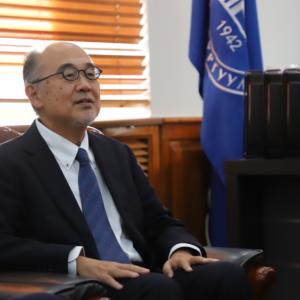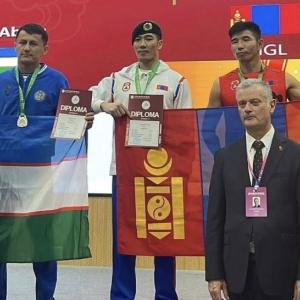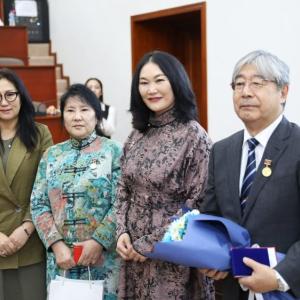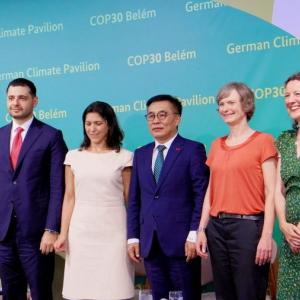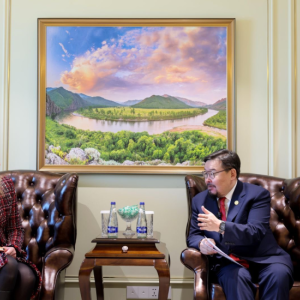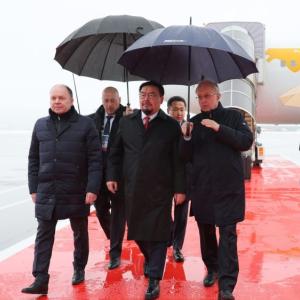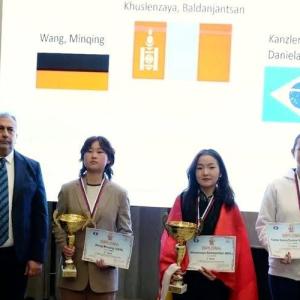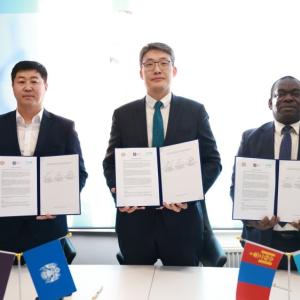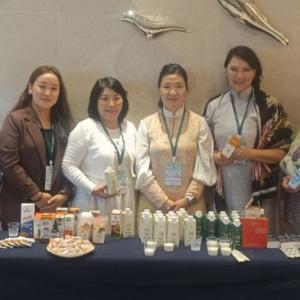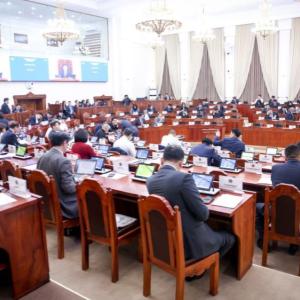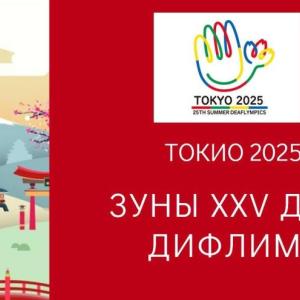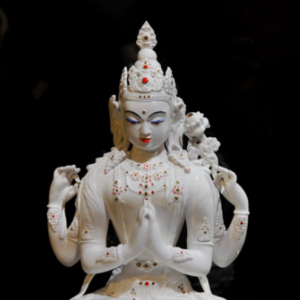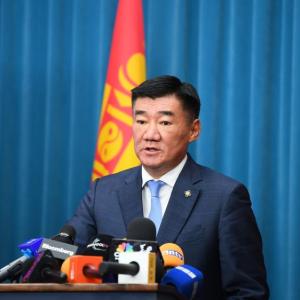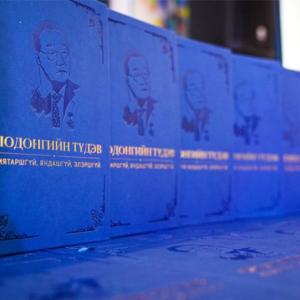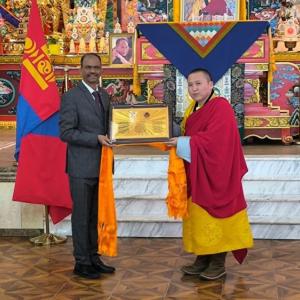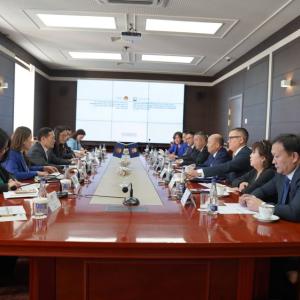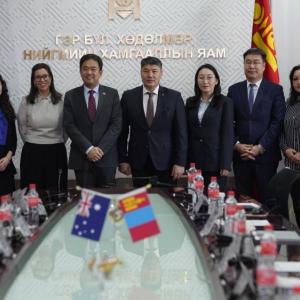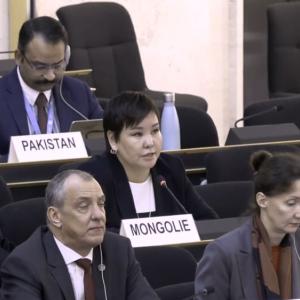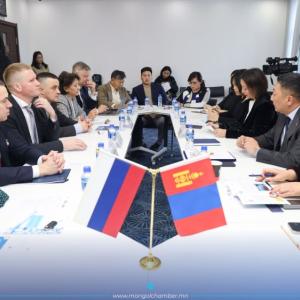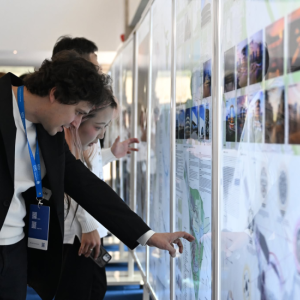Oliver Corff: Mongol Studies will Notably Contribute to Mongolia's Soft Power Policy
Society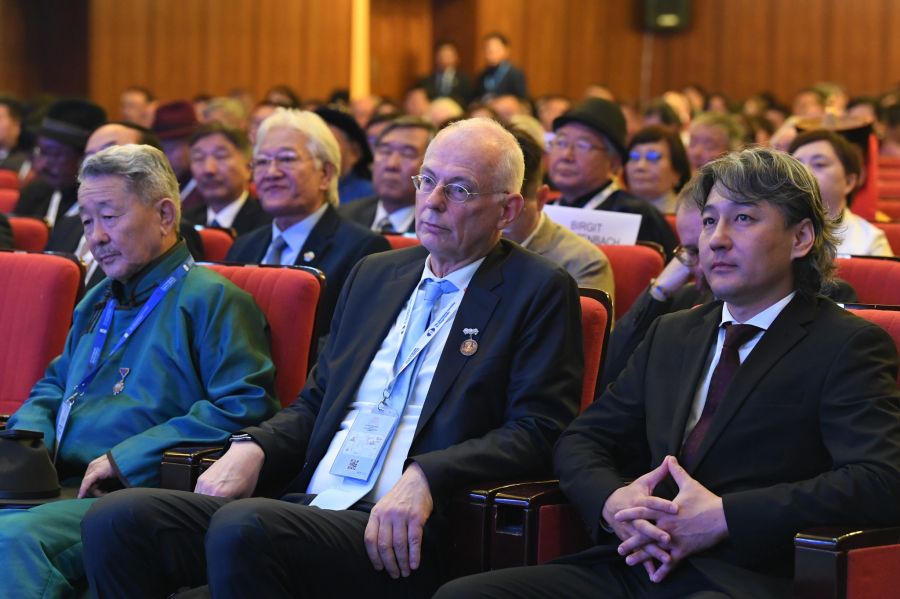
Ulaanbaatar,
August 18, 2023 /MONTSAME/. Dr.
Oliver Corff, a German Mongolist delivered a presentation on "Reading
Constitutions as Sources of Intellectual History: 100 Years of Constitutions in
Mongolia" at the Mongolia Society, Economy, Politics, and Legal Studies
section of the 12th International Congress of Mongolists. A reporter of
MONTSAME Mongolian National News Agency talked with him about his studies and
Mongol Studies.
- There
are probably very few foreign Mongolists, who have studied the Constitution of
Mongolia. Why did you choose this topic?
-I chose this topic because of my own history. In February 1992, when I was studying in Mongolia, the new Constitution of Mongolia was approved. That was the time when the country changed its name from the People's Republic of Mongolia to Mongolia. I talked to many people about the new Constitution, and after reading the preamble, I thought that it was the first law that clearly stated the independence of Mongolia and the human rights and freedoms of its citizens. I decided to translate your new Constitution from Mongolian to German and started work in 1992-1993, but I could not find a publisher to print it.
When I read 2-3 books of the old Constitution of
Mongolia, which I had bought in a secondhand book shop after returning to
Mongolia I found the old Constitution completely different from the new one.
The study of the history of your Constitution begins here. The first
Constitution of Mongolia was written in 1924, and the second Constitution was
approved in 1940. However, in the 1940s, many amendments were made to it. By
1957, the articles of the second Constitution increased to 108. Numerous words
related to socialism were included in the third Constitution in the 1960s. It
might be related to the friendly relations with the USSR at that time. I have a
goal to publish a work that comprises all the Constitutions of Mongolia from
1924 to 1992 with explanations in both Mongolian and German languages. This is
my plan for the past 15 years. The new Constitution adopted by the Mongolians
in 1992 is already 30 years old. Therefore, you can now discuss and decide
whether it is useful/ beneficial for the people and whether it is suitable for
Mongolians. In general, there is a huge difference between the Constitution of
the socialist era and the current Constitution. The Constitutions of 1924-1960
were written on the Soviet model. In other words, it was not written or edited
by Mongolians.
- I
intended to ask you a question related to that. When writing the new
Constitution of 1992, it is said that a lot was taken from the Constitution of
Germany. How reasonable is that?
-Yes, there are some ideas taken from the Constitution of
Germany. But the new Constitution is a real Mongolian law, written by
Mongolians themselves. Those little things from Germany, I suppose, have contributed to and benefited your country and citizens. Another difference is that in 1991,
when the new Constitution was being written, an academic group was established.
That group included international legal experts, including German experts,
while during the Soviet period, it was directly imposed that "your
Constitution should be like this".
- You must have read and made a comparison
between the Constitution of Germany and the new Constitution of Mongolia,
adopted in 1992.
-Of course. I would like to say that these two laws are
quite different, for example, regarding provisions related to the parliamentary
system and the powers of the President and Prime Minister. The most important
thing is that human rights and freedom are reflected in both Constitutions.
Germany and Mongolia are countries with different histories. In addition, the
new Constitution of Mongolia in 1992 clearly stated the relationship between
citizens and the state. In the socialist era, the law always stated that the people
are citizens. Not a citizen, but citizens, in order words people or communities.
Let's mention an example of issues related to the rights and freedom of
citizens. For example, the Constitutions before 1992 stated that the citizens
should not work more than 8 hours. Such things should be reflected in the
employment contract signed with the organization you work for. In general,
there is no need to include such detailed provisions in the Constitution.

- Now,
I would like to ask you a few questions as a Mongolist. You are the first
scholar from Germany who worked at the Mongolian Academy of Sciences (MAS)
since 1990, right?
-Yes. The first time
I set foot in Mongolia was in 1981. But I lived and worked in Mongolia since 1991.
At that time, I was working on a project to develop a computer program of
traditional Mongol Script at the Institute of Linguistics of MAS. In addition,
a plan for a Mongolian language dictionary was developed in cooperation with the
research staff of the Institute of Linguistics. In the mid-1990s, I gave
lectures on computer programming of Mongol Script to Cyrillic Script at MAS. I
began publishing the never-before-published "Dictionary of the Qing
Dynasty" or the "Dictionary of Manchu words written by the Emperor in
five languages" (abbreviated as "Dictionary of Five Languages")
written in 1794. It is a dictionary of Manchu, Tibetan, Chinese, Mongolian, and
Tsagaadai languages with 18671 words.
- You have been working in Mongol studies since 1991. How is Mongol
studies developing in the world?
-It is developing, but there are few Mongolists in any country, including Germany, France, and the US. It is related to geopolitical policy. The funding often depends on geopolitics. I studied modern Mongolia in East Germany when our country was divided into two. Walter Heissig was a prominent Mongolist from West Germany. There are some students of him, who study Mongolian history. Walther Heissig established the Permanent International Altaistic Conference (PIAC) and served as its Secretary General. I have been appointed PIAC Secretary General this year. Incidentally, PIAC was first established in 1957 and its regular meeting was recently held in Astana, Kazakhstan.
-You must have participated in most of the previous International Congresses of Mongolists. How is this conference different from previous meetings?
-My first participation in the International Congress of Mongolists was the one held in 1992. Since then, I have participated in several congresses. In my opinion, there is no significant difference. Of course, there are changes. The number of participating foreign scholars is increasing, and its scope is expanding internationally. In my opinion, this congress is an important event organized by Mongolia on the international stage. Mongol studies and academic works will notably contribute to Mongolia's soft power policy. Therefore, I think it would be very beneficial for Mongolia to continue to organize this congress in 5-6 years.
-Are
young Mongolists emerging abroad?
-Yes, they are. A few years ago, there were few young
Mongolists in Germany, but recently the number has been increasing. There has
been a significant increase in foreign scholars who is good in Mongolian and
are doing academic research. I find their research works very good, listening
to the presentations about their works.
 Ulaanbaatar
Ulaanbaatar







